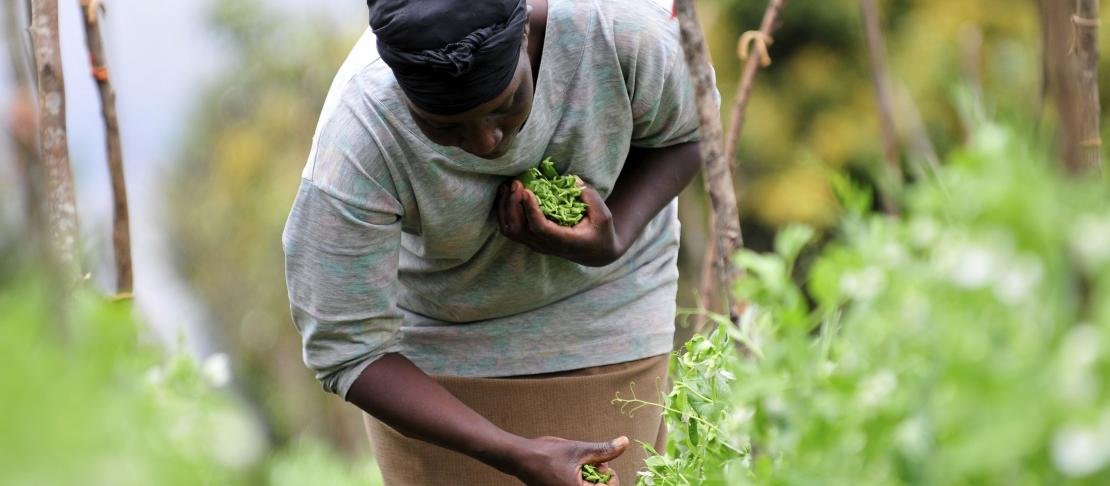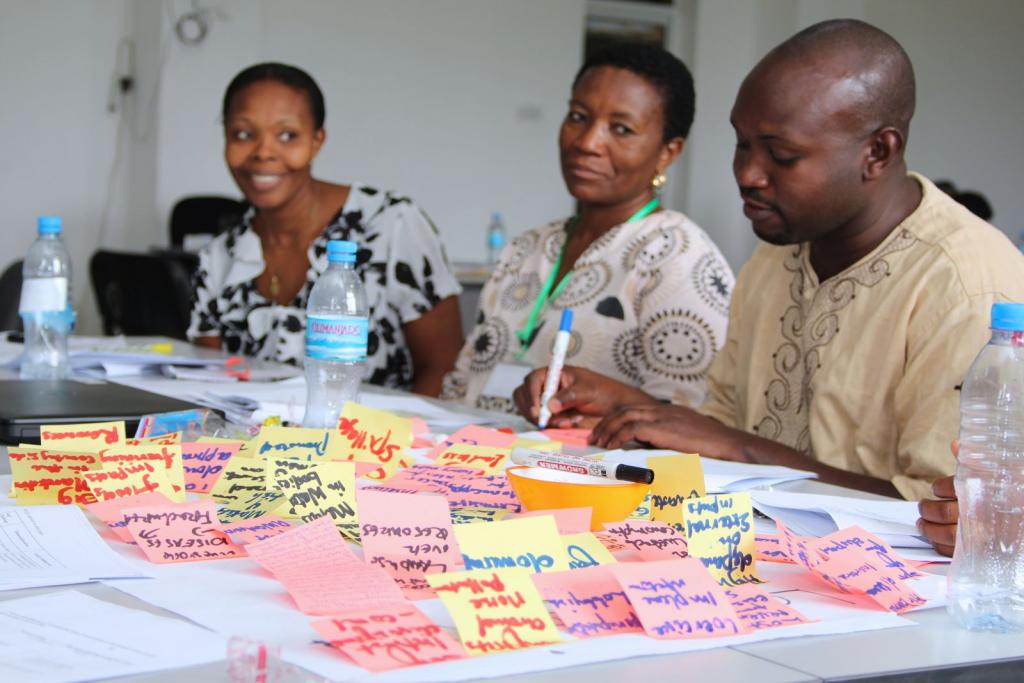Policy action for climate change adaptation in East Africa

Project description
The Policy Action for Climate Change Adaptation (PACCA) project sought to inform and link policies and institutions from national to local level for the development and adoption of climate-resilient food systems in Uganda and Tanzania.
The project connected the scientific community with policy actors through learning alliances. Research evidence was generated through activities that included analyzing policy formulation and implementation processes, trade-off analysis, future socio-economic and climate scenario development, creating evidence-based gender awareness, and applied information economics.
The generated knowledge was exchanged with learning alliance members, who used it to implement policy engagement actions. The learning alliance participants included government technocrats and policy decision-makers, scientists, non-governmental organizations, private sector representatives and farmers’ associations at national and sub-national levels.
The ambition was to encourage science-policy exchanges and create opportunities for stakeholders to express needs and current knowledge gaps, while educating participants about climate issues. All activities aimed to better inform the implementation of climate-resilient policies that encourage the adoption of gender-responsive climate-smart agricultural practices across multiple scales in the two countries.

Future socio-economic and climate scenario development workshop with Learning Alliance members in Tanzania. Photo: E. van de Grift
This research aimed to create a space in which various actors in Uganda and Tanzania work together to establish climate resilient policies and institutions that promote climate-smart agricultural practices. The actors included relevant ministries and departments, including Agriculture, Environment and Finance departments, local governments, NGOs, media, civil society, the private sector and research organizations. Key outcomes include:
- Increased information seeking/exchanging behaviour among policymakers, implementers and researchers.
- Policymakers and implementers recognize gaps and conflicts in policy implementation and seek to address them.
- Policymakers and implementers have identified policy actions for improved climate change adaptation.
- Better-informed decisions for climate change adaptation by policymakers/implementers.
- Increased appreciation of and actions towards including gender-sensitive policies and implementation.
Impacts
The PACCA learning alliance became a point of reference for many stakeholders as an appropriate and timely initiative. It also:
- Enhanced human capacity for climate change adaptation
- Led to better-informed investment decisions for climate change adaptation
- Created an environment for inclusive and effective policy formulation and implementation
- Supported collective multi-stakeholder efforts to address issues of climate change
Outputs
- Video: Taking action for climate-responsive policies in East Africa
- Info note: Gender and climate change in Uganda
- Info note: Towards gender responsive policy formulation and budgeting in the agricultural sector: Opportunities and challenges in Uganda
- Info note: Gender responsive policy formulation and budgeting in Tanzania
- Info note: Barriers to successful climate change policy implementation in Tanzania
- Info note: Scenario-guided policy planning in Uganda
- Info note: Scenario-guided policy planning: Processes, comparisons and lessons from East Africa
- Climate-smart agriculture report that includes analysis at farm level and national portfolio of options
- Portfolio of present and future potential climate-smart agriculture investment options
Partners
The project was led by the International Institute of Tropical Agriculture (IITA) and also worked with the International Center for Tropical Agriculture (CIAT).
The project was carried out in collaboration with relevant ministries and departments, national research institutions and other non-state agencies involved in climate change work in Uganda and Tanzania. For example, in Uganda the project worked with the Ministry of Water and Environment, the Ministry of Agriculture, Animal Industry and Fisheries, Participatory Ecological Land-Use Management (PELUM Uganda),Community Integrated Development Initiatives, Makerere University Climate Change Research Institute, Environmental Management for Livelihoods Improvement (EMLI), the Parliamentary Forum on Climate Change, the National Agriculture Research Organization and Rakai Local Government. In Tanzania, partners include the Ministry of Agriculture, Food Security and Cooperatives, the Vice President’s Office, Lushoto District Council, the Agriculture Non-State Actors Forum, the University of Dar Es Salaam, Sokoine University of Agriculture, and Economic and Social Research Foundation (ESRF).
Gender
Evidence was generated showing gender mainstreaming gaps in policy documents at national and sub-national levels and gaps in gender budgeting at local government level. The Parliament of Uganda was engaged with this evidence, and CCAFS has been invited by others to present at workshops. This evidence has informed the development of guidelines for mainstreaming gender in the National Adaptation Plan.
In 2017, this evidence was taken to districts. The Learning Alliances in 2016 concentrated on supporting districts to develop climate resilient five-year development plans (2016-2020) and adaptation planning. While presenting the gender evidence in 2017, the Learning Alliance addressed the membership issue.
Further information
For further information, please contact the Project Coordinator, Edidah Ampaire (IITA) at e.ampaire@cgiar.org.